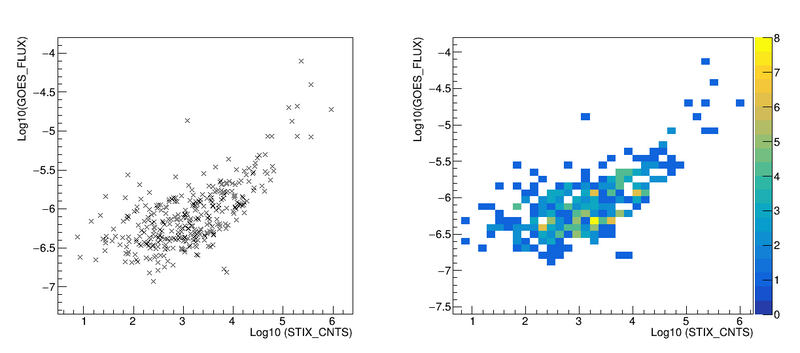Difference between revisions of "GOES Flux vs STIX counts"
| Line 13: | Line 13: | ||
where p0, p1, p2 are the parameters from the curve fit, peak_counts is the STIX QL LC peak | where p0, p1, p2 are the parameters from the curve fit, peak_counts is the STIX QL LC peak | ||
counts and r is the distance between the Sun and solar orbiter in units of au. <br> | counts and r is the distance between the Sun and solar orbiter in units of au. <br> | ||
| − | The error of an estimated flux is considered to be the same as the error of its nearest data point | + | The error of an estimated flux is considered to be the same as the error of its nearest data point. |
Revision as of 08:53, 18 January 2022
File:Goes-stix-flux-fit.png
Fig. 2 A profile of the histogram shown in Fig. 1. A cubic function fitted to the profile is also shown.
The GOES flux of a flare is estimated using
flux=10^(p0+p1*x+p2**x^2+p3*x^3),
with x=log10(stix_peak_counts)/r^2
where p0, p1, p2 are the parameters from the curve fit, peak_counts is the STIX QL LC peak
counts and r is the distance between the Sun and solar orbiter in units of au.
The error of an estimated flux is considered to be the same as the error of its nearest data point.
